Texas
U.S. census and other surveys likely undercount the number of LGBTQ+ people living in Texas
Some queer Texans may fear disclosing their sexual orientation or gender identity to neighbors or the government. The lack of accurate numbers makes it more difficult to provide appropriate health care, especially in rural areas.
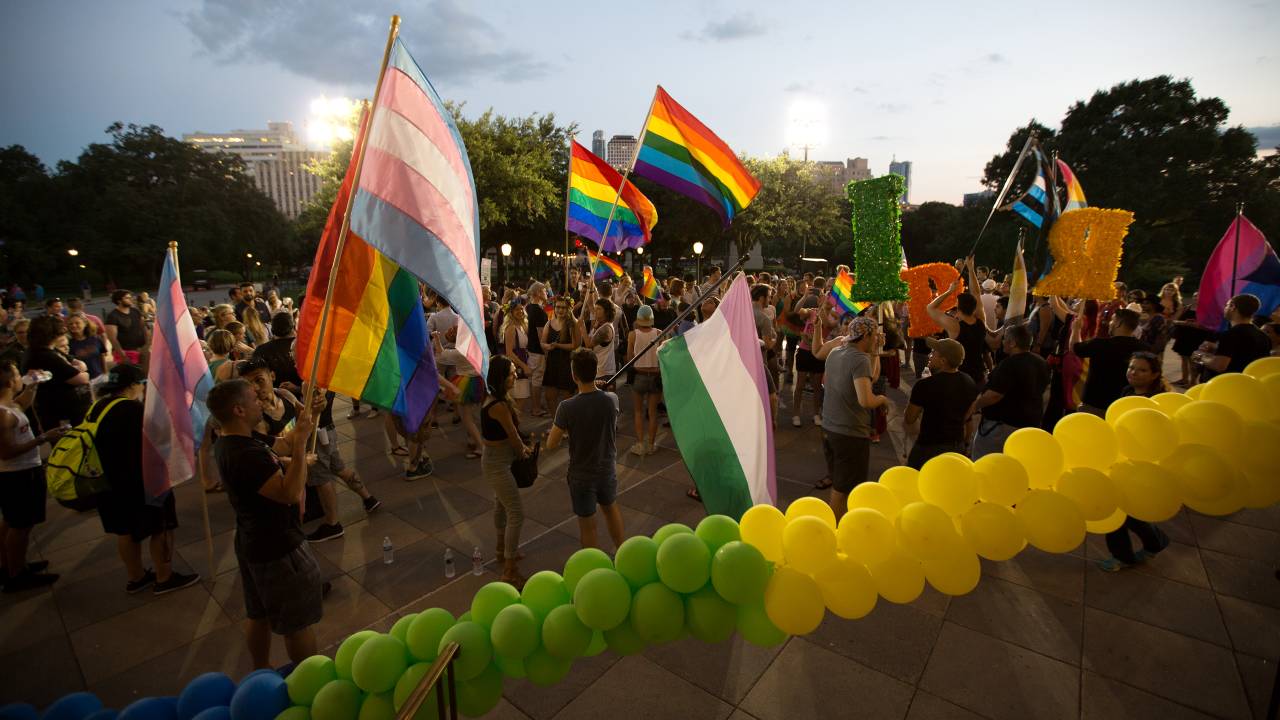
This article originally appeared in The Texas Tribune
 Gallup estimated that 5.6% of Americans identified as lesbian, gay, bisexual or transgender in 2020. But according to the U.S. census from the same year, four Texas counties had no same-sex households and 93% had fewer than the national average.
Gallup estimated that 5.6% of Americans identified as lesbian, gay, bisexual or transgender in 2020. But according to the U.S. census from the same year, four Texas counties had no same-sex households and 93% had fewer than the national average.
Official surveys like the census undercount the size of the LGBTQ+ population, in part due to people’s fears of disclosing their sexual orientation or gender identity to neighbors or the government, said Jack Jen Gieseking, a cultural geographer who studies gender and sexuality at Mount Holyoke College in Massachusetts.
“There are definitely always LGBTQ people everywhere, no matter what the state,” said Gieseking.
Undercounting the LGBTQ+ population makes it difficult for health care providers to deliver appropriate care, for service organizations to raise funds and for governments to allocate resources. These challenges are especially relevant in Texas, where a conservative culture makes people less likely to disclose their sexual orientation or gender identity on official surveys.
“One risk of undercounting is the assumption then that the population or the problem doesn’t exist,” said Brett Cooper, a specialist in adolescent medicine and member of the Texas Medical Association’s LGBTQ Health Section.
The U.S. census is severely limited in its ability to represent the LGBTQ+ population, according to Amy Spring, a demographer at Georgia State University. The survey asks only whether respondents live in same-sex households, and Spring said that this ignores gay and lesbian people who live in other arrangements and doesn’t address sexual and gender identity directly.
The American Community Survey, which is administered by the Census Bureau each year and is intended to provide more timely data than the decennial census, is also limited to asking about same-sex households. However, because this survey is given to only a sample of households, the picture it provides can be even fuzzier than the census. For example, between 2019 and 2021, the survey estimated that 75 Texas counties had no same-sex households, although estimates vary widely between years, especially for counties with small populations.
By contrast, a 2022 Gallup poll estimated that 7.1% of Americans identify as LGBT.
These limitations are exacerbated by LGBTQ+ people’s fear of disclosing their status, especially in rural and more conservative parts of Texas.
Amber Pérez, executive director of Borderland Rainbow Center, a LGBTQ community space in El Paso, said that she knows “quite a few” people who are afraid to disclose their sexual orientation and gender identity, especially in West Texas and other heavily Catholic areas along the border.
“Nobody really talks about it,” said Pérez. “And I think that people are concerned that if they mark specific things on the census or on surveys, they’re afraid it’s going to get back to people.”
While more urban parts of the state, such as Harris and Travis counties, show up in census data as having above-average rates of same-sex households, more rural areas, especially in West Texas and the Panhandle, show much lower rates.
“I am sure that you would not tell someone out where Lyndon Johnson grew up in the prairie that, yes, I’m gay, I’m a gay man living by myself,” said Gieseking.
As executive director of Texas Pride Impact Funds, Ron Guillard travels across the state to meet with LGBTQ+ service organizations. He said that LGBTQ+ people in many rural areas still hide their identities, even while the need for LGBT-specific services is clear.
“When you visit the small nonprofits that we fund in the Panhandle, it’s evident they serve large populations for counties and counties around them,” Guillard said. “Unfortunately, the Stonewall generation really just is largely living Don’t Ask, Don't Tell lifestyles, and they’re not engaged with the emerging needs of their communities.”
Demonstrating need
The undercounting of LGBTQ+ Texans can make it hard for the organizations that serve them to acquire funding and provide care.
According to Guillard, services for LGBTQ+ people are concentrated in the state’s urban centers and drop off rapidly in more rural areas.
Pérez said that her El Paso Borderland Center, which provides support groups and education and connects LGBTQ+ people with appropriate health care providers, serves people 300 miles away, some of whom are willing to drive in to receive treatment from a provider who understands their experience.
However, due to the challenges of counting LGBTQ+ people, Pérez said that illustrating the need for the services her center provides can be difficult.
In addition to undercounting, part of the problem is that sexual orientation and gender identity aren’t included in the census in the same way that categories such as race and gender are. For example, Pérez said that statistics such as income or food insecurity might describe the population of El Paso as a whole, but the experiences of her staff tell her that the situation for LGBTQ+ people can be much worse.
“We have numbers, but we don’t have great numbers,” said Pérez.
Amy L. Stone is a professor at Trinity University in San Antonio and co-director of Strengthening Colors of Pride, an organization studying LGBTQ+ health and resilience in San Antonio. They echo the challenges that insufficient data pose for organizations’ fundraising.
“You really need data,” Stone said. “If you’re going to write a grant, you can’t just say, well, I just know a lot of people who need this thing, right? You really need to say definitively, we need this resource.”
In order to address this need, in 2019, Strengthening Colors of Pride conducted a survey of LGBTQ+ people in the San Antonio area. The survey revealed the kind of statistics that Pérez said she needs, showing, for example, that LGBTQ+ people in the area have lower incomes and high rates of unemployment, are more likely to avoid seeing a medical professional, and report three times the national rate of family trauma and adverse childhood experiences.
Using the data produced by the survey, Stone said that Pride Center San Antonio was able to demonstrate the need for additional space to provide counseling and mental health care. Other organizations serving LGBTQ+ people in the area have been able to use the data in similar ways.
Providing care
Research shows that LGBTQ+ people in the United States face distinct health problems and have distinct challenges accessing care. They have higher rates of trauma, cancer, HIV and AIDS and are also more likely to have trouble finding a health care provider, to delay care or to not receive care at all.
According to the Centers for Disease Control and Prevention, it is essential for health care providers to collect information about patients’ sexual orientation and gender identity in order to avoid health disparities and provide important services. However, the CDC also notes that many facilities lack the capabilities to collect this information.
Instead, many health care providers, especially those who are cisgender and heterosexual, are likely to assume that their patients are not LGBTQ+, said Gieseking.
Cooper gives the example of a pediatrician in a suburban area who claimed to have no LGBTQ+ patients. However, Cooper points out, looking at national data on trends related to LGBTQ+ youth, the pediatrician should assume that between 1% and 5% of his patients likely identify in that way.
“He’s just not asking,” said Cooper. “And so then he’s like, I don’t need to ask these questions. I don’t need to provide these services because if I have these supplies, I’m only going to use them on no one, so why would I pay for them?”
The lack of accurate data also impacts health research funding, said Cooper, who argues that government funds are more likely to go to areas that can demonstrate a greater impact. If an area in Texas appears to have few LGBTQ+ people on an official survey, that money is more likely to go to an area in another state where cultural factors make disclosing various sexual orientations or gender identities more likely.
“We need better ways of finding accurate counts of LGBTQ+ people in the country just to make sure that when we’re doing good policy, good funding allocations, we have accurate data,” said Cooper. “To be able to make sure that those dollars are spent in a prudent way and in a way that’s going to have the biggest impact versus just guessing.”
Stone said that the difficulty of obtaining appropriate health care in Texas is made worse by the prevalence of Catholic hospitals in the state and by the conservative state government’s tendency to rely on services from the nonprofit sector, where religious organizations are common.
Looking forward
While the decennial census and the American Community Survey ask respondents only if they live in a same-sex household, the Census Bureau’s American Pulse Survey began, in July 2021, to include questions on sexual orientation and gender identity. The survey, which was created to provide data on experiences of the COVID-19 pandemic, revealed that LGBT respondents were more likely to feel anxious and depressed and to experience loss of job-related income.
The Census Bureau received $10 million in its 2023 budget for research related to adding questions about sexual orientation and gender identity to the American Community Survey. New survey questions must be approved by the Office of Management and Budget before they can be added to the American Community Survey.
The National Science and Technology Council also released, in January, a Federal Evidence Agenda of LBGTQI+ Equity, which highlights the lack of national data on the LGBTQ+ population and includes specific recommendations for improving data collection.
If questions about sexual orientation and gender identity were included on national surveys, Stone said, “it’d be mind-blowing because we actually would finally have a somewhat accurate count of how many LGBT people are in the U.S. We don’t even know that number. We’ve got no sense of what that number is.”
In the meantime, Stone said, organizations in Texas often must rely on imperfect data or conduct their own surveys.
“Without any data on your community, it’s really hard to say, ‘Yes, we absolutely need funding for this critical health care in our community,’” Stone said.
Daniel Carter is the co-director of Texas Community Health News.
Disclosure: Texas Medical Association has been a financial supporter of The Texas Tribune, a nonprofit, nonpartisan news organization that is funded in part by donations from members, foundations and corporate sponsors. Financial supporters play no role in the Tribune's journalism. Find a complete list of them here.
The Texas Tribune is a nonpartisan, nonprofit media organization that informs Texans — and engages with them – about public policy, politics, government and statewide issues.
Education
Feds investigate another Texas school district for its gender identity mandate
Katy ISD’s board voted this past fall to require staff to notify parents if their child wants to use a different pronoun or identifies as a different gender.
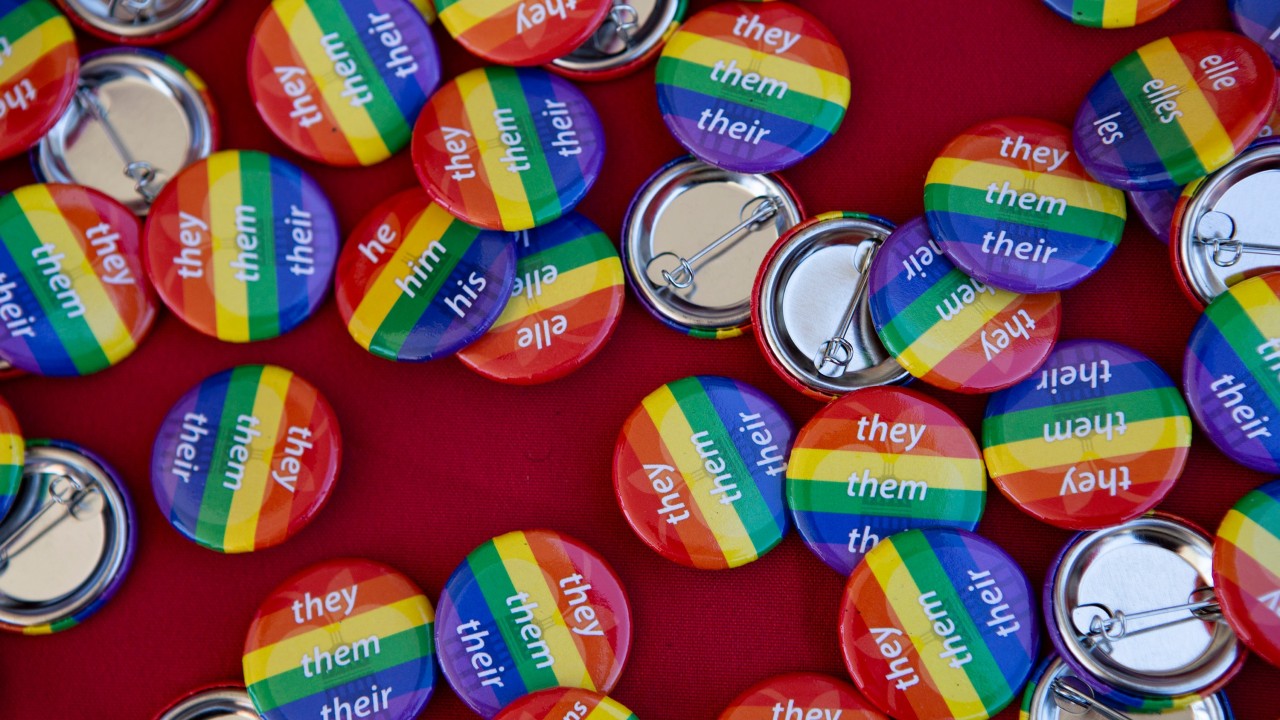
This article originally appeared in The Texas Tribune
 The U.S. Department of Education’s Office for Civil Rights opened an investigation Monday into Katy Independent School District’s gender identity policy on the basis of gender harassment under Title IX. The investigation came nine months after the Houston Landing reported that the district adopted a policy that notifies parents if their child requests to use a different name or pronouns at school.
The U.S. Department of Education’s Office for Civil Rights opened an investigation Monday into Katy Independent School District’s gender identity policy on the basis of gender harassment under Title IX. The investigation came nine months after the Houston Landing reported that the district adopted a policy that notifies parents if their child requests to use a different name or pronouns at school.
Katy ISD did not respond to a request of how many parents have been notified this year under the new policy, which requires staff to inform parents that students are transgender or ask to use different names or pronouns.
The Houston Chronicle reported in December that the district had notified parents at least 23 times since the policy was adopted.
The gender identity policy also bars schools from teaching “gender fluidity” and denies students from competing in sports with the gender they identify with, which mirrors state legislation already regulating K-12 athletics.
Students Engaged in Advancing Texas, a student-led advocacy group, filed a complaint with the U.S. Department of Education in November regarding the policy. Katy ISD graduate and member of SEAT Cameron Samuels labels the investigation as a win against the conservative policies being passed in the district.
“Elected solely on platforms to target marginalized students, far-right school board candidates accomplished exactly what they were elected to do: weaponize identity and neglect students’ educational needs,” they said.
Title IX prohibits sex-based discrimination in educational settings or federally funded activities. Gov. Greg Abbott has loudly voiced his opposition to the federal law recently ordering the Texas Education Agency to disregard the Biden administration’s expansion of Title IX.
“The district is committed to offering equal educational opportunities to our entire community,” a spokesperson from Katy ISD told the Tribune in a response to the investigation. “While we have received the OCR filing and deny any wrongdoing, we are committed to remaining fully cooperative and responsive throughout the process.”
Victor Perez, Katy ISD board president and proponent of the policy, argued that the policy was “mischaracterized” by community members as an attack on its queer and transgender students and instead relieves the burden for staff withholding information from parents. The policy was passed at a board meeting in August with a vote of 4-3 after four hours of public comment.
Alastair Parker, a member of the Cinco Ranch High School Gender-Sexuality Alliance, spoke at the board meeting in opposition to the policy.
Parker and others argued that the policy infringes on the rights of transgender kids to express themselves and opens them to potential harm if they are outed to transphobic parents or caregivers.
Johnathan Gooch from Equality Texas, a nonprofit advocacy group for LGBTQ+ Texans, said he hopes students recognize their power to report policies like this in the wake of the increasing number of legislation targeting LGBTQ+ youth.
This isn’t the first instance in Texas of a gender related policy being investigated on the federal level. Carroll ISD in Tarrant County was reported to have eight open investigations last February after it eliminated protections over race, religion, gender and sexual orientation.
There are documented mental health benefits to using preferred pronouns. A research team at the University Texas at Austin conducted a study in which they concluded that students in gender-affirming environments report 71% fewer symptoms of severe depression, a 34% decrease in reported suicidal ideation and a 65% decrease in suicide attempts.
“When students place their trust in teachers and school administration, the school has a duty to preserve that trust,” Gooch said. “That duty requires schools to ensure that no disclosure would place a student in harm’s way.”
Parker has been out as a transgender man since the seventh grade and is supported by his father, who he resides with. He acknowledged that this isn’t the case for many of his classmates as some have parents that are less accepting.
His teachers have gone by his preferred name and pronouns for his entire high school experience. But since the policy has been enacted, he has seen some of his peers go by their deadnames fearing that their parents would be notified.
Over the past year, other schools across the state have adopted similar policies.
Keller ISD, which is also in Tarrant County, passed a policy in late June that prevents students from using their preferred name and pronouns or using restrooms with the gender they identify with.
The policy was met with retaliation from the Texas American Civil Liberties Union, writing in a letter to the district that the policy is “deeply invasive and unlawful for school administrators to interrogate students’ private medical information in this way.”
As the end of the school year nears, Parker observed the policy being enforced at varying levels of severity by teachers. The passing of legislation or policy like this deters from the ongoing health crisis for queer and transgender youth and is wholly unnecessary, he said.
“If a child’s not telling their parents something like that, it’s for a reason,” he said. “I know that most of the people who are in favor of this are the ones who bounce off whatever their parents have told them to repeat.”
Disclosure: Equality Texas has been a financial supporter of The Texas Tribune, a nonprofit, nonpartisan news organization that is funded in part by donations from members, foundations and corporate sponsors. Financial supporters play no role in the Tribune’s journalism. Find a complete list of them here.
The Texas Tribune is a nonpartisan, nonprofit media organization that informs Texans — and engages with them – about public policy, politics, government and statewide issues.
Amarillo
Appeals court considers whether West Texas A&M drag show was unconstitutionally banned
University President Walter Wendler canceled a drag performance last year, claiming such shows “denigrate and demean women.”
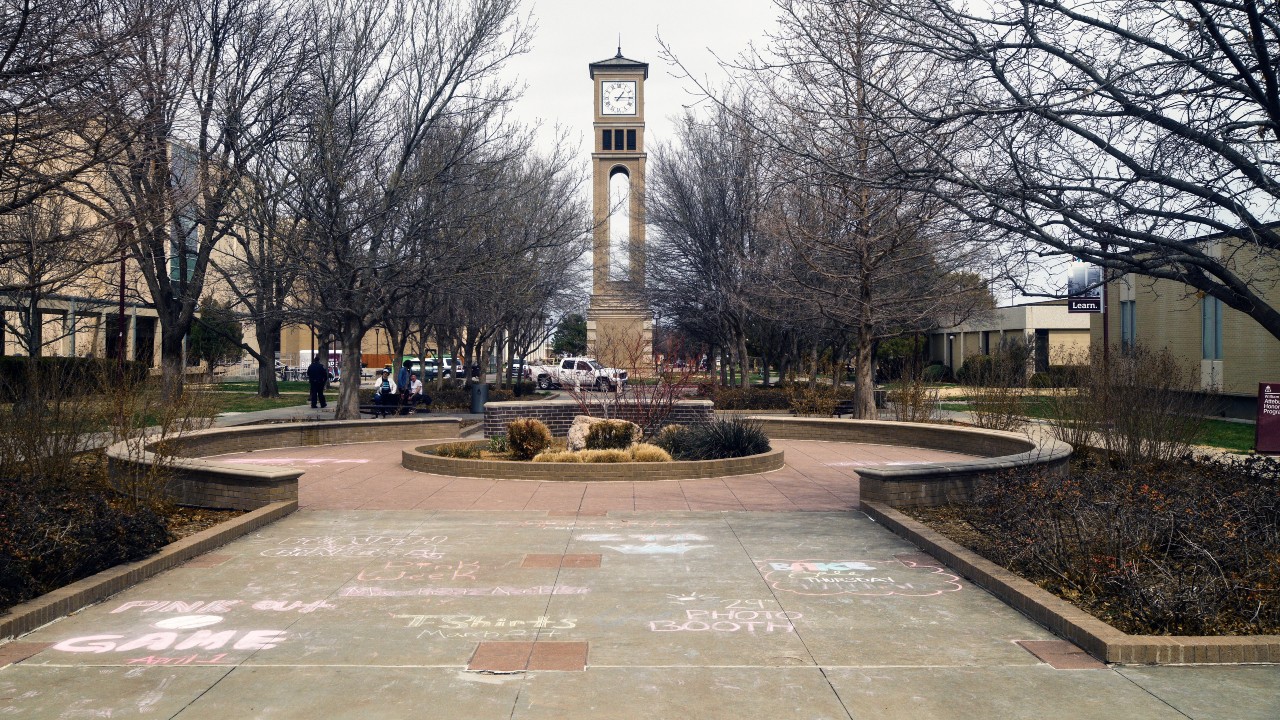
This article originally appeared in The Texas Tribune
 A federal appeals court considering whether West Texas A&M University’s president violated the First Amendment when he canceled a campus drag show last year focused many of their questions Monday on a U.S. Supreme Court ruling that upheld campus non-discrimination policies.
A federal appeals court considering whether West Texas A&M University’s president violated the First Amendment when he canceled a campus drag show last year focused many of their questions Monday on a U.S. Supreme Court ruling that upheld campus non-discrimination policies.
But the panel of three judges used that 2010 case — which said universities can require groups to admit LGBTQ+ students — to suggest that school officials could also ban drag shows because some people find the performances offensive to women.
A lawyer representing a group of West Texas A&M students who’ve twice attempted to host a drag show on campus argued before the 5th U.S. Circuit Court of Appeals Monday that President Walter Wendler discriminated based on viewpoint and censored speech when canceling the performances.
In March 2023, Wendler banned drag shows in response to a student fundraiser that featured drag performers. The president argued the performances “denigrate and demean women,” and shouldn’t be allowed on the public university’s campus.
In September, a federal judge said Wendler acted within his authority to cancel the drag show. In his opinion, U.S. District Judge Matthew Kacsmaryk wrote, at “this point in Free Speech jurisprudence, it is not clearly established that all ‘drag shows’ are categorically ‘expressive conduct.’”
Last month, students with WT Spectrum, the student group at the university, hoped to hold another drag show on campus — to show support for the LGBTQ+ community in a staunchly conservative corner of Texas.
With Wendler’s campus-wide ban still in place, the Supreme Court declined to intervene and the president again ordered the fundraiser from taking place.
The panel of judges hearing the appeal Monday were James Dennis, James Ho and Leslie Southwick.
Many of their questions centered around Christian Legal Society v. Martinez, a case in which the Supreme Court upheld a policy of the University of California, Hastings College of the Law, that bars student groups from excluding members based on status or beliefs.
In 2010, the Supreme Court affirmed that Hastings’ policy does not violate the First Amendment rights of CLS, a group of students that wanted to be officially recognized on campus while not allowing people who engage in “unrepentant homosexual conduct” from joining.
The 5th Circuit judges Monday seemed to suggest that Wendler’s ban was no different from the policy at the center of the 2010 Supreme Court case. One of the judges, who didn’t identify themselves before speaking, asked if plaintiffs intended to use the case in question to overturn CLS.
“Maybe we should overturn CLS?” one of three judges said. “Many people would like CLS overturned.”
Ho equated the policy upheld in CLS with Wendler’s drag ban. He said both intend to make everyone feel included, but the policies have the consequence of targeting one group. In CLS’ case, he said that Christians were singled out on Hastings’ campus for not allowing LGBTQ+ individuals to join. Ho said that previous groups on Hastings’ campus could exclude members, but CLS was singled out by the university’s non-discrimination policy.
JT Morris, senior attorney for the Foundation for Individual Rights and Expression who represented the students, argued that the judges were comparing “apples to oranges” between the two cases.
Morris argued CLS is about a content-neutral policy, while Wendler was clearly discriminating based on viewpoint.
“The First Amendment does not allow the government to use the subjective term ‘offensive’ to restrict speech,” Morris said.
Joseph N. Mazzara, a lawyer with the Texas Attorney General’s Office who represented Wendler, said the students had not suffered any injury as a result of the no-drag policy because there was no future event featuring drag performers planned. Additionally, Mazzara said Wendler’s policy carried no criminal penalties and students could host drag performances off campus.
Mazzara said Wendler’s ban was not a free speech violation, but rather it was akin to banning certain conduct, like skateboarding on the grounds of a monument. He said drag shows constituted conduct, not speech.
“They’re able to do everything they want to do, they’re able to say all the speech they want to [say],” Mazzara said, referring to the student group WT Spectrum. “They just can’t do this one particular thing in this one particular place.”
A judge asked Mazzara how the university would have treated drag shows put on by other student groups, such as a fraternity. The judges seemed to agree with Mazzara that Wendler’s restriction did not target a specific viewpoint.
“If a Christian legal group wanted to have a ‘Drag for Jesus’ event that would also be banned,” Mazzara said.
One judge suggested that some drag shows are offensive to the transgender community, and thus Wendler’s ban would equally protect that population from offensive performances.
Allison Marie Collins, another lawyer from the Attorney General’s Office representing other defendants named in the lawsuit, argued the appellate judges should not impose any restrictions on Texas A&M system Chancellor John Sharp or West Texas A&M Vice President for Student Affairs Christopher Thomas. She argued an injunction against Sharp or Thomas would be overbroad, because it’s clear that only Wendler has acted to stop these shows.
“Neither Chancellor Sharp nor Dr. Thomas have remotely engaged in viewpoint discrimination, exclusion from a public forum or a prior restraint complaint to speech,” Collins said.
In his rebuttal, Morris argued the plaintiffs have standing over Sharp because he has the authority over Wendler to put an end to this restriction on free speech.
“He has the authority to do what’s best for the campus,” Morris said of Sharp. “He should have put an end to this prior restraint, which shouldn’t have lasted a day, and has now lasted a year.”
Disclosure: Texas A&M University and West Texas A&M University have been financial supporters of The Texas Tribune, a nonprofit, nonpartisan news organization that is funded in part by donations from members, foundations and corporate sponsors. Financial supporters play no role in the Tribune’s journalism. Find a complete list of them here.
The Texas Tribune is a nonpartisan, nonprofit media organization that informs Texans — and engages with them – about public policy, politics, government and statewide issues.
Education
Under Katy ISD gender policy, student identities disclosed to parents 19 times since August
Public records obtained by the Houston Landing offer the first glimpse at how often the new, hotly contested policy has been used to disclose LGBTQ+ students’ identities to parents — even if the students aren’t ready.
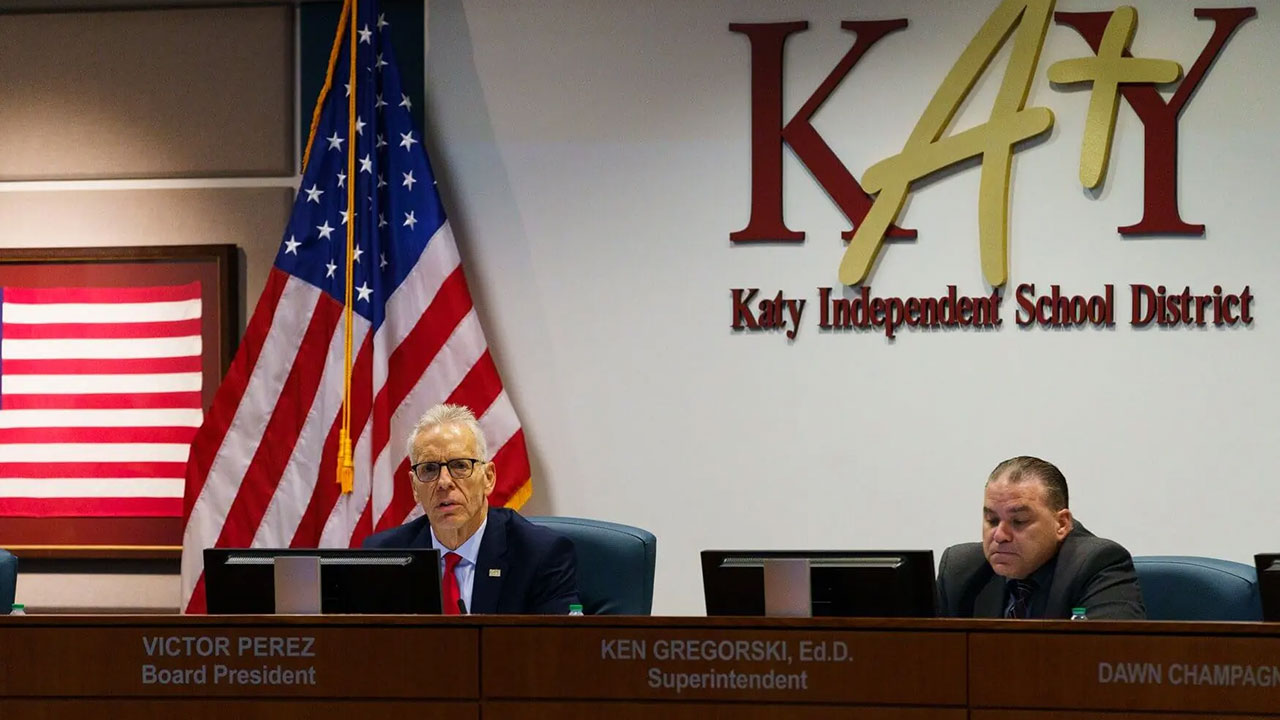
 Since narrowly passing a controversial gender policy two months ago, Katy Independent School District has sent 19 notifications informing parents that their child identified themselves as transgender or requested to use different names or pronouns at school.
Since narrowly passing a controversial gender policy two months ago, Katy Independent School District has sent 19 notifications informing parents that their child identified themselves as transgender or requested to use different names or pronouns at school.
The number of parental notifications, obtained by the Houston Landing through a public records request, is the first glimpse at how often the new, hotly contested policy has been used to disclose LGBTQ+ students’ identities to parents — even if the students aren’t ready.
So far, the district averages a notification to a parent roughly once every three days.
The district’s policy requires staff to inform parents if their student requests to use different pronouns or names, or if they identify themselves as transgender — and obtain written parental consent to comply with the request. It also prohibits employees from asking for students’ preferred pronouns and discussing “gender fluidity,” and requires students to use bathrooms that align with their sex assigned at birth.
Jarred Burton, a student leader at Tompkins High School’s Sexuality and Gender Alliance, said the number of notifications already sent to parents is both depressing and surprising. Critics, including Katy parents, LGBTQ+ students and local advocates, have blasted the policy as a dangerous measure with the potential to expose students’ gender identities to unsupportive parents, further harming a community that already faces a higher risk of mental health issues than their peers.
“It’s just sad to see this actually happening,” Burton said. “It shows that (the policy) is not a bluff.”
Board members who supported the policy hailed it as a measure that would center parents’ right to be informed about their child’s gender identity and protect teachers from making uncomfortable decisions about concealing such information from parents.
“(Parents are) supposed to be looking after the health and welfare of their child,” Board President Victor Perez said at a late August meeting. “Withholding that information from the parent, that is a great burden on staff.”
It’s unclear how many parents were already aware of their child’s gender identity. District officials also did not make any board members available for an interview on the matter.
“The policy is intended to provide parents and guardians the opportunity to be made aware of their child’s name change request, and the opportunity to grant or deny approval of said request,” Katy spokesperson Nick Petito said in a statement Wednesday.
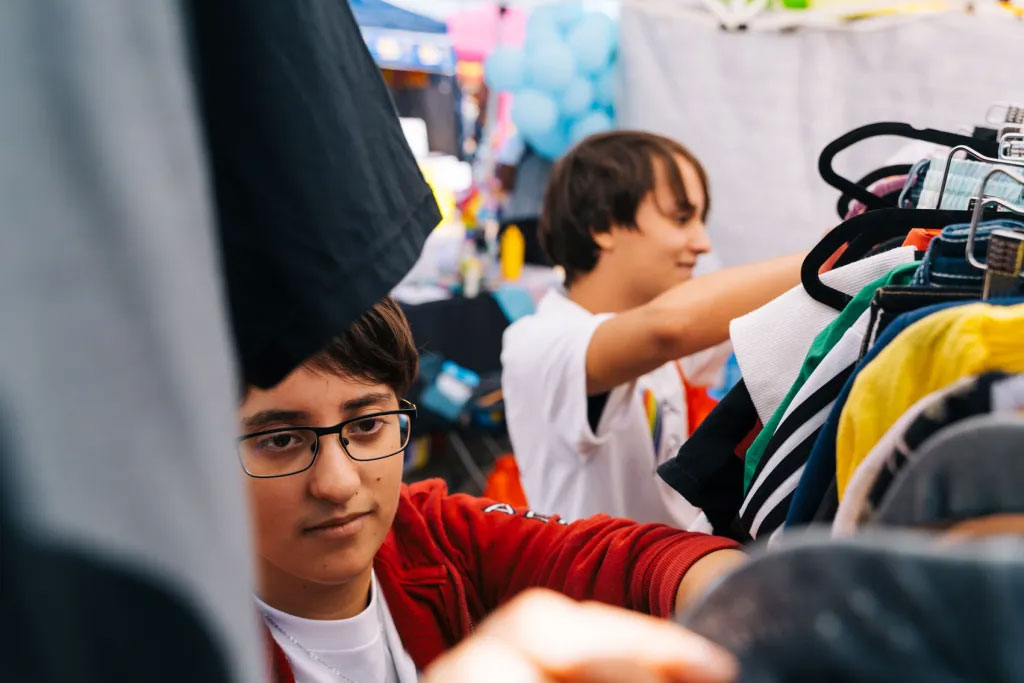
Ash Thornton, a transgender man and a junior at Tompkins High School, said the number of notifications being sent home will discourage LGBTQ+ students from feeling safe to explore their identities.
“It signals that it’s something bad, them being transgender or expressing gender in a way that’s different,” Thornton said. “It definitely messes up student-teacher relationships.”
Employees are not required to comply with a student’s name or pronoun change even if a parent gives consent, the policy states.
One staff member on every campus is responsible for processing and sending notifications to parents and guardians, Petito said. The policy makes an exception for “cases of suspected abuse.”
Students belonging to LGBTQ+ clubs have told the Landing the policy has caused their schools to become less of a safe space and has instilled fear among LGBTQ+ youth in Katy.
“There’s just been this looming cloud of dread over a lot of people,” Burton said in a September interview. “There’s gonna be a lot of people that get in trouble by their parents or get hurt. … It just sometimes keeps me up at night a little bit because it’s hard to imagine how much hate people can have to pass something like this.”
The number of notifications sent to parents to date leaves Thornton to wonder what else is to come.
“It’s only been two months and there’s already 19, how many more people are going to be affected by even just the end of the semester?” he said.
The Houston Landing is a nonprofit newsroom devoted to public service journalism for all Houstonians.
This article first appeared on the Houston Landing and is republished here with permission.



